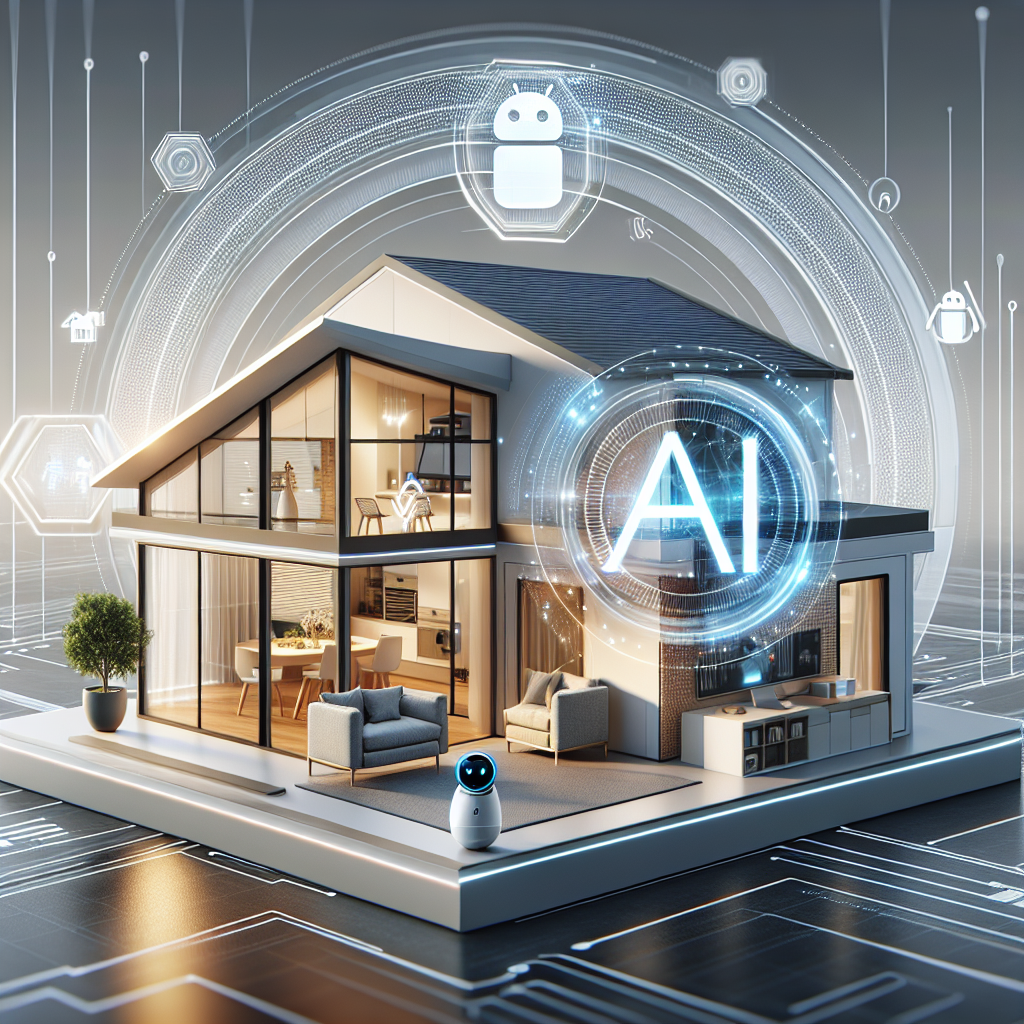In recent years, the use of artificial intelligence (AI) in smart home technology has become increasingly popular. AI has the potential to revolutionize the way we interact with our homes, making them more efficient, convenient, and secure. From voice-controlled virtual assistants to smart thermostats and security cameras, AI-powered devices are transforming the way we live.
One of the key benefits of AI in smart home technology is its ability to learn and adapt to our habits and preferences. For example, a smart thermostat equipped with AI can analyze your daily routines and adjust the temperature accordingly, saving you money on energy bills. AI-powered security cameras can also learn to distinguish between normal activity and potential threats, reducing false alarms and providing a more accurate level of security.
Another advantage of leveraging AI in smart home technology is the ability to control and monitor your home remotely. With the help of AI-powered apps and devices, you can check on your home, adjust settings, and receive alerts from anywhere in the world. This level of connectivity and convenience is especially valuable for busy homeowners who are constantly on the go.
Furthermore, AI can enhance the overall user experience of smart home technology. By analyzing data from various sensors and devices, AI can provide valuable insights and recommendations to help you make smarter decisions about energy usage, security, and more. For example, AI-powered lighting systems can suggest optimal lighting settings based on your activities and preferences, creating a more comfortable and personalized environment.
One of the most popular applications of AI in smart home technology is virtual assistants like Amazon Alexa, Google Assistant, and Apple Siri. These voice-controlled devices can perform a wide range of tasks, from setting reminders and playing music to controlling smart appliances and answering questions. By leveraging AI algorithms, these virtual assistants can understand natural language, learn from interactions, and provide personalized responses to users.
In addition to virtual assistants, AI-powered smart devices like smart thermostats, lighting systems, and security cameras are becoming increasingly common in modern homes. These devices can communicate with each other and adapt to changing conditions, creating a seamless and intelligent home environment. For example, a smart thermostat can adjust the temperature based on occupancy sensors and weather forecasts, while a smart lighting system can automatically dim or turn off lights when no one is in the room.
As the technology continues to evolve, the possibilities for leveraging AI in smart home technology are endless. From smart appliances that can order groceries to robotic vacuum cleaners that can navigate around obstacles, AI is transforming the way we interact with our homes. By embracing AI tools and devices, homeowners can enjoy a more efficient, convenient, and secure living environment.
FAQs:
Q: How does AI improve energy efficiency in smart homes?
A: AI-powered devices like smart thermostats and lighting systems can learn your habits and adjust settings to optimize energy usage, reducing waste and lowering utility bills.
Q: Are AI-powered security cameras more accurate than traditional security systems?
A: Yes, AI-powered security cameras can distinguish between normal activity and potential threats, reducing false alarms and providing a more accurate level of security.
Q: Can AI-powered virtual assistants learn from user interactions?
A: Yes, virtual assistants like Amazon Alexa and Google Assistant can analyze user interactions and provide personalized responses based on preferences and habits.
Q: What are some popular AI-powered devices for smart homes?
A: Popular AI-powered devices for smart homes include smart thermostats, lighting systems, security cameras, and virtual assistants like Amazon Alexa and Google Assistant.
Q: How can AI enhance the overall user experience of smart home technology?
A: By analyzing data from various sensors and devices, AI can provide valuable insights and recommendations to help users make smarter decisions about energy usage, security, and more.

